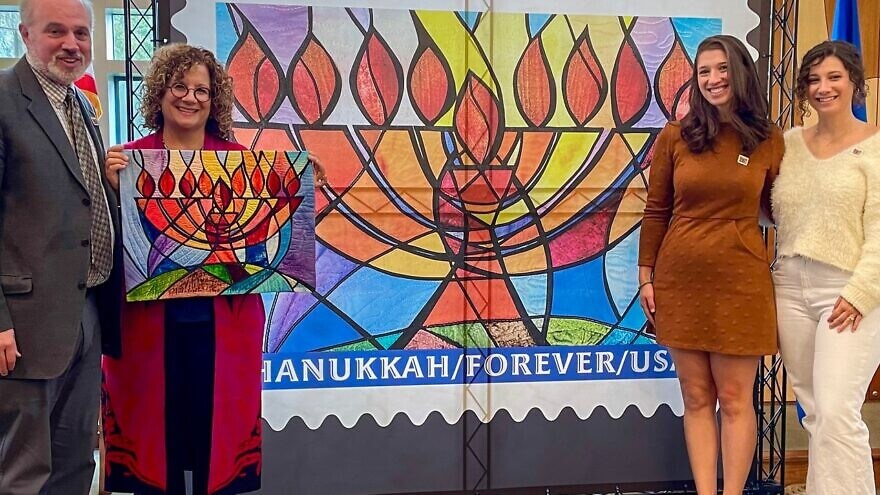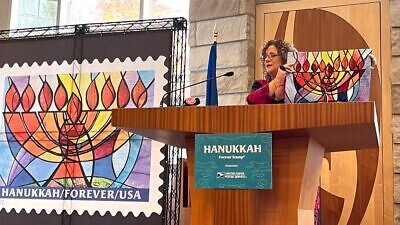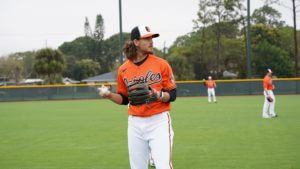Original Article Published On the JNS
There is essentially no limit to Sylvan Adams’ commitment to biking, tikkun olam (the Jewish concept of repairing the world) and portraying his beloved country of Israel in a positive light. The Canadian-Israeli businessman and philanthropist, who made aliyah from Montreal along with his wife in 2015, has devoted himself to serving as a self-appointed “ambassador-at-large for the State of Israel.”
From Rwanda to Afghanistan, Adams uses his charm and philanthropy to show off Israel’s and Judaism’s finest qualities.
Adams aims to show the world what he calls the “normal Israel” and “the beautiful reality of the country to gigantic audiences around the world.” At a great financial cost, hundreds of millions of people are exposed to Israel in this light.
In 2018, Adams brought the first three stages of the Giro d’Italia, one of bicycle racing’s three Grand Tours, to Israel. It was the first time the famed race had taken place outside of Europe. More than 1 million Israelis lined the roads and cheered on riders for the three days of racing, and over a billion biking fans around the world viewed the event on TV, Adams notes.
In 2019, when Tel Aviv hosted the Eurovision Song Contest, Adams was the money and brains behind bringing legendary singer Madonna to make an appearance. More than 280 million people around the world saw Madonna—and Israel—on TV.
This summer, Adams was responsible for bringing three of soccer’s biggest stars to Tel Aviv for the Trophée des Champions, the annual match between the champions of France’s top league and the winners of the Coupe de France, in 2022 Paris Saint-Germain and FC Nantes, respectively.
Lionel Messi, Neymar and Sergio Ramos all scored for the Paris side in the sellout match at Bloomfield Stadium, which was viewed by 400 million fans, in addition to the hundreds of millions of social media followers of the game’s stars, who all posted from Tel Aviv.
The soccer event took place one week after Tel Aviv Sourasky Medical Center (commonly referred to as Ichilov Hospital) inaugurated the Sylvan Adams Emergency Hospital, made possible by a $28 million gift from Adams. The 8,000-square-meter (86,000-square-foot), three-floor facility is the largest ER in the world.
Adams has also supported the creation of the Sylvan Adams Children’s Hospital at Wolfson Medical Center in Holon. The facility is the home of Save a Child’s Heart (SACH), a non-profit organization Adams also supports that has provided care to more than 5,400 children from 62 countries in Africa, the Middle East, Asia, Europe and South America. The NGO has also performed life-saving surgery for Israeli and Palestinian children.
“SACH shows the true heart of Israel, fulfilling the Jewish imperative of tikkun olam around the world,” Adams says.
To date, he is the only Israeli member of the Giving Pledge, the organization started by Warren Buffet and Bill and Melinda Gates in which billionaires and near-billionaires commit to giving away the majority of their wealth to philanthropic causes.
When Adams is not busy improving the world, the 63-year-old can be seen on his bike—around Israel and around the world. And he has found numerous ways to combine biking, charitable giving and Israel hasbara (public diplomacy).
The devoted biker won the World Masters Championship in Manchester, U.K., in 2017 and is co-owner of Israel-Premier Tech, Israel’s top cycling team that was formerly named Israel Start-Up Nation, and of its development team, Israel Cycling Academy. Israel-Premier Tech competes in the Union Cycliste Internationale’s World Tour, including the Tour de France, known for the 2.5 billion TV viewers and 15 million live spectators who line the streets and roads of France to experience the 23-day cycling event, and the Giro d’Italia, the second-biggest bicycle race in the world. Adam’s team features Chris Froome, a four-time Tour de France winner.
While Israel Premier-Tech was competing in the Tour de Rwanda, Adams observes how integral bikes are for Rwandans. “Everybody rides bikes with baskets stuffed to the brim. We decided to take on a social mission and adapt the bikes. We provide bikes, helmets, shoes and Israeli cycling clothing. We also provide coaching from Israel and mechanics. Their enthusiasm and appreciation is infectious.”
Adams has also committed to promoting professional biking in Rwanda. “We fund the women’s team in Bugesera [district].” He is quick to add, “Our work is based on the Jewish value of tikkun olam—our Jewish culture stresses the importance of tikkun olam—all they need is a chance.”
Over the past year, Adams has helped resettle more than 400 refugees from Afghanistan. Perhaps not surprisingly, this group includes some of the country’s top female cyclists.
Adams shared the behind-the-scenes rescue story with JNS in a recent Zoom interview. “Out of the blue, I got a call from a cycling reporter who works in Afghanistan. People were being killed and tortured for the sin of riding a bike. Is there anything you can do?”
Adams went to work. “I started making inquiries.” He contacted IsraAID.
When he learned that it would be possible to locate and assist all the members of the female national cycling team, Adams recalls resolving, “I got this—let’s try to save them. We need to act quickly.”
To date, more than 400 refugees have been rescued and resettled, in three waves.
The rescue mission, which began in 2021, continues to have a biking connection. The last group of female riders to escape the Taliban arrived in Switzerland for the Oct. 22 UCI Afghanistan Women’s National Championship after receiving special visas.
Marjan, the former captain of the Afghan national team, recounts, “I am a human being. I am a woman and I am a cyclist. To bike, I risked my life. I was a victim and shot at just because I rode my bike. I thought I would die but I got back to my bike, but when the Taliban came back, I thought they would shoot me again. I escaped, found a new home, and now I am on my way to my first race in freedom! We are racing to show the world that Afghan women never give up. We are strong.”
Adams came out to greet the team. “I felt obligated. To save one life is to save the world. To see them race is uplifting. When I heard about the plight of the Afghan cyclists stranded in Afghanistan, a place where these women would be persecuted or possibly killed merely for riding their bikes, I felt an obligation to try to help. To be able to offer this help as a Jew, and as the owner of an Israeli team, felt even more meaningful, a sign of true shared responsibility. Indeed, the Talmud tells us that even a single life saved uplifts our world, and we saved 400 worlds.”
Mahraz, 16, left her entire family behind but expressed happiness here: “We are racing to show the whole world that Afghan girls never give up. They are strong.”
“It is all about our Jewish value of tikkun olam.”





